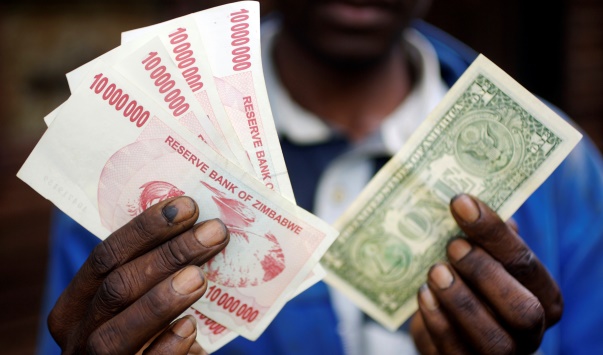At least once a month, a private plane carrying millions of US dollars lands in Zimbabwe at the Robert Mugabe International Airport and secures perimeter on the outskirts of Harare. The cash is then unloaded from the pallets, sorted into packages, and allocated to transfer points across the country.
This unusual but legitimate operation, arranged by the country’s biggest mobile money app, Mukuru, depicts the extent to which some companies will go to keep customers who seek to avoid the local currency in Zimbabwe’s lopsided economy.
The mobile money sector in Africa has experienced significant growth over the past two decades, processing more than $900 billion annually, according to a global research and advocacy organisation for mobile operators, GSMA. While most fintech companies prioritise digital money transfers, those in Zimbabwe also cater to a unique niche by facilitating Zimbabweans’ access to physical US dollars.
The Reserve Bank of Zimbabwe estimates that remittances from Zimbabweans abroad increased by 16% to $823 million in the first half of the year alone.
The nation’s inclination toward using cash began over 15 years ago, following a botched land reform initiative that triggered a devastating hyperinflation crisis. This crisis erased Zimbabweans’ savings and resulted in the abandonment of the national currency in 2009.
Since then, the government has attempted to reintroduce a national currency several times, the most recent being a gold-backed unit called the ZiG. Despite that, the vast majority of all transactions in the country were still being consummated in US dollars.

Although the new currency has shown stability, convincing people to embrace it has been challenging. Many believe they don’t have to worry about depreciation as long as they hold foreign currency.
The bias toward cash doesn’t only reflect concerns about the ZiG’s stability. The government has a history of converting foreign dollars held in banks into local currency without warning and imposing strict withdrawal limits, which have scared Zimbabweans away from the formal banking sector.
Authorities are concerned about Zimbabweans’ heavy dependence on cash. They are keen on promoting the use of the ZiG to have a greater influence over the economy. Their previous efforts have been ineffective, so now they are trying to suppress the underground trading of dollars.


